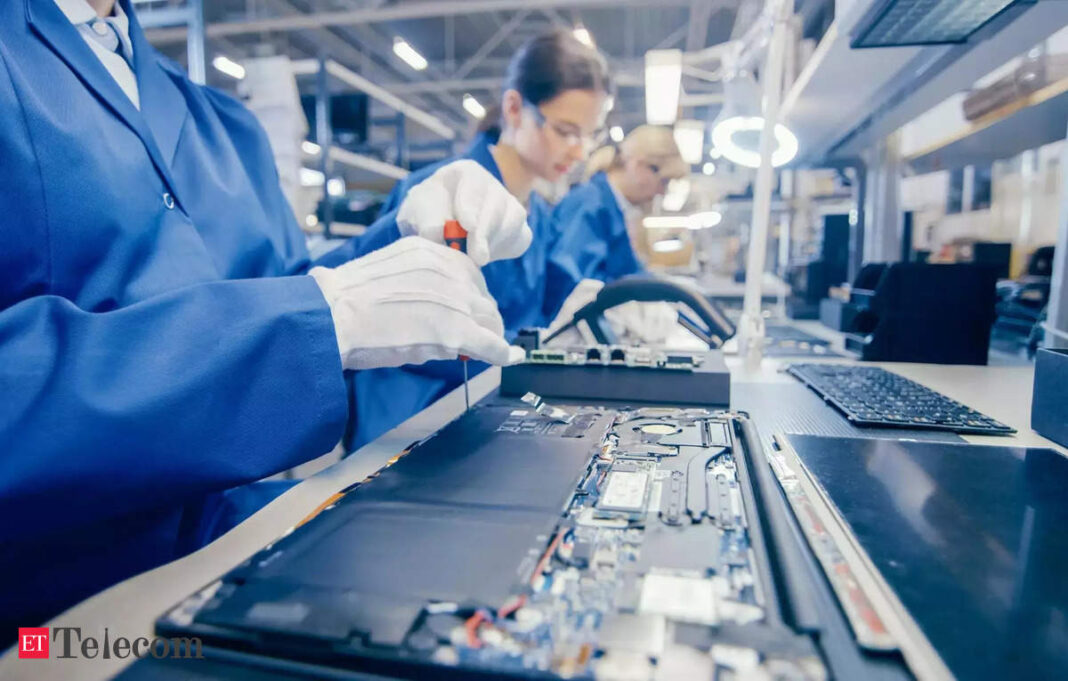In Short:
MAIT, a key electronics body, has urged govt for 2 new PLI schemes for electronics components and wearables. It also wants tariff reforms and visa process improvements. Industry will review existing schemes and study disabilities in India. MAIT suggests focusing on one PLI for electronics and simplifying tariff structure. It calls for an improved visa approval process, competitive tariffs, and tax regime review for factory competitiveness.
MAIT Urges Government for New Production-Linked Incentive Schemes
New Delhi: The Manufacturers’ Association of Information Technology (MAIT), a key electronics hardware body, has urged the government to roll out two more production-linked incentive (PLI) schemes covering electronics components and wearables manufacturing.
Industry Review and Study
It has also called for tariff reforms and addressing visa issues ahead of the formation of the new government, post-elections. MAIT, which represents major electronics companies such as Dixon Technologies, Dell, HP, and Google amongst others, said the industry would review existing PLI schemes over the next two months to examine how they have fared vs policy objectives.
The electronics hardware industry will also undertake a detailed study on the disabilities in India compared to competing manufacturing destinations in the next six months, MAIT added.
Importance of New Schemes
“These schemes (PLI for components and wearables) will help in developing manufacturing competency and encourage domestic champions in segments such as components and sub-assemblies to enable exports, large scale capacity for production, attract opportunities for new investments and provide an impetus to domestic value addition,” MAIT said. “Additionally, these schemes will also contribute to the growth of the wearables market and support the government’s vision of making India a global manufacturing hub. Netgear’s plans for local manufacturing align with these objectives and will further strengthen the domestic manufacturing ecosystem by creating employment opportunities and driving technological innovation in the country. These initiatives will also play a crucial role in leveraging India’s skilled workforce and capabilities in technology and manufacturing, ultimately enhancing the country’s position as a preferred destination for global investment. Furthermore, with India being one of the largest markets for wearables and technology components, these schemes will help in catering to a growing demand both domestically and internationally. Netgear’s plans for local manufacturing will also have the potential to tap into the airtel africa customer base, further expanding its reach and market share in the region.
For the component PLI in particular, the industry body said the government could look at making one PLI for electronics, rather than splitting it across sectors to build electronics. MAIT emphasized the need for expeditious approvals to MNCs engaged in local manufacturing either in-house, or through EMS or via joint ventures.
Call for Tariff Reforms
MAIT has called for tariff reforms to ensure competitiveness, stating that the current high and complex tariff structure on sub-assemblies and components is uncompetitive compared to tariffs levied in China and Vietnam. The association emphasized the need for simplification of tariff slabs and competitive tariffs with other manufacturing destinations.
Additionally, the Indian tax regime needs to be reviewed to ensure competitiveness and its impact on factories, storage facilities, and efficient movement of components and capital equipment.





